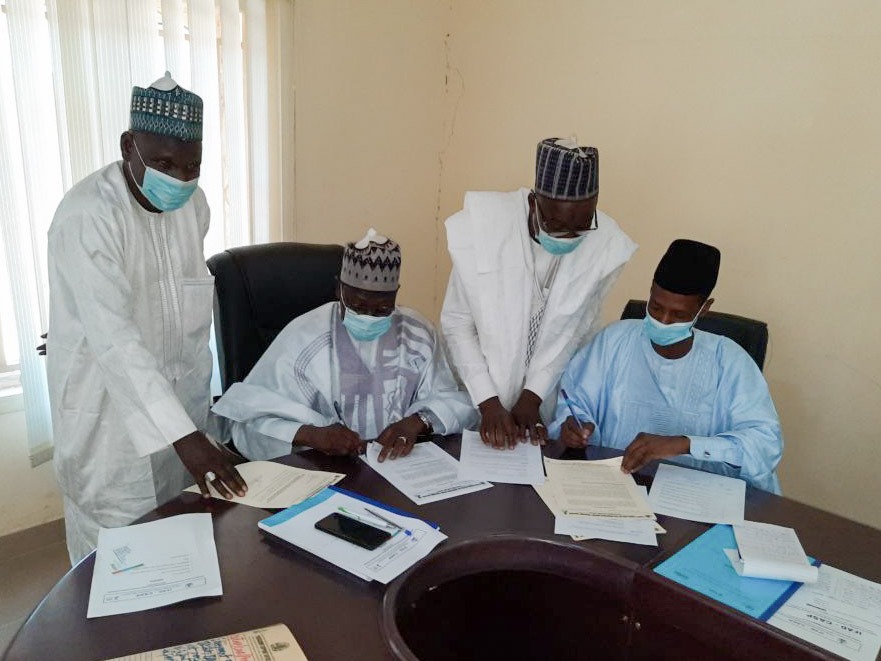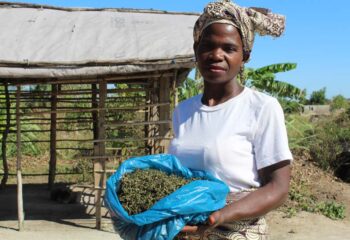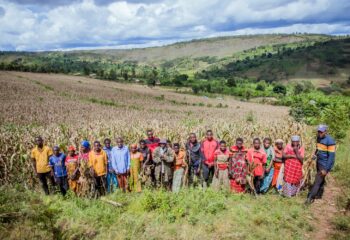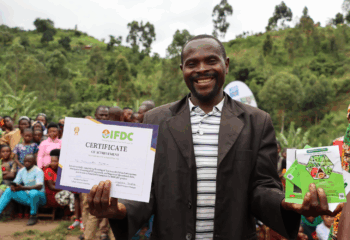
With a population of 200 million people, Nigeria is often referred to as the “Giant of Africa.” It hosts 50% of the West African population, yet it faces persistent poverty and inequality. Since 2018, Nigeria has been home to the largest population of poor people in the world. The majority of the rural poor are women. The country faces consistent problems of low agricultural productivity, limited value addition, and weak linkages between agro-input providers and the industry. Lockdown measures imposed by the government to curb the spread of COVID-19 disrupted global supply chains and are threatening national food security, with about 100 million people facing food shortages due to a spike in domestic food prices.
To ease the effect of the pandemic, persistent flooding, and climate change on national food security, the Rural Poor Stimulus Facility (RPSF) was conceived to provide 100% subsidized inputs to the poorest of the poor farmers within vulnerable Sahelian states (Borno, Jigawa, Katsina, Kebbi, Sokoto, Yobe, and Zamfara) in order to maintain or improve their productivity.
The RPSF follows internationally adopted features of stimulus packages, so that vulnerable businesses can deal with the adverse effects of the pandemic. Given limited RPSF resources, it will be combined with the repurposed Climate Change Adaptation and Agribusiness Support Programme (CASP) grant resources to increase outreach. By supporting smallholders in mitigating this crisis through a market-led approach, basic farming activities will be sustained, paving the way for longer term post-crisis recovery and resilience.
On March 10, 2021, IFDC signed a contract with the CASP to serve as the program’s supply chain manager. CASP is funded by the International Fund for Agricultural Development (IFAD) and the Federal Government of Nigeria.
The agreement follows the decision by CASP to appoint a service provider to ensure the efficient, effective, and transparent procurement and distribution of input packages to targeted farmers using a voucher system. IFDC was selected for the opportunity based on its previous track record of providing agricultural solutions including affordable and effective inputs.
IFDC will ensure the efficient, effective, and transparent procurement and distribution of input packages to targeted farmers under the Value Chain Development Project (VCDP). IFDC will manage the selection of agro-dealers using performance and outreach criteria, ensure inputs are available to those agro-dealers so that farmer demand can be met,manage input supply logistics addressing bottlenecks that may occur, and monitor progress on input distribution to selected farmers.
Through this agreement, CASP will provide 8,334 smallholder farmers with certified seeds, fertilizers, and agrochemicals. The second phase of the program is expected to reach an additional 19,500 vulnerable farmers, bringing the total assisted to 27,833.



